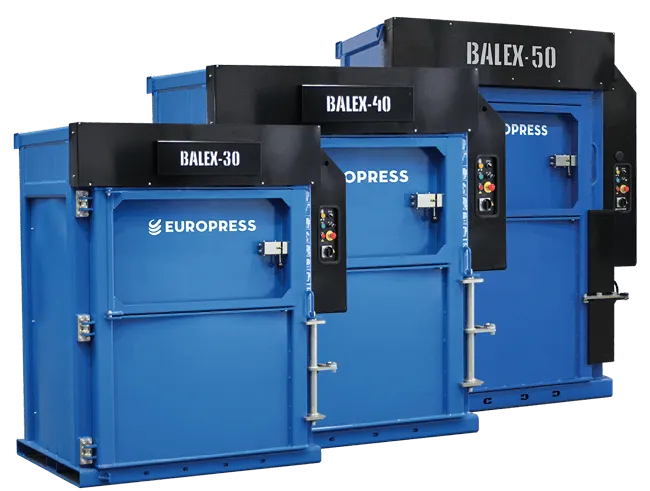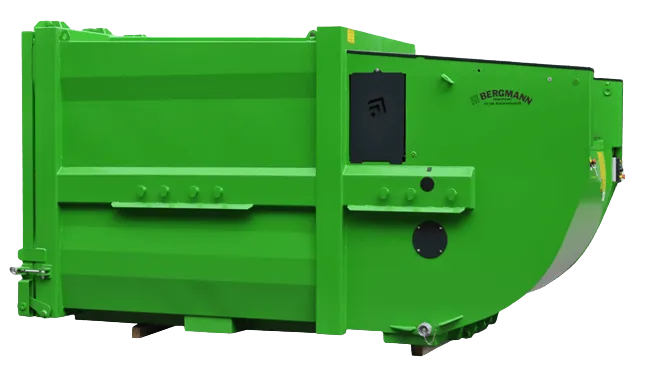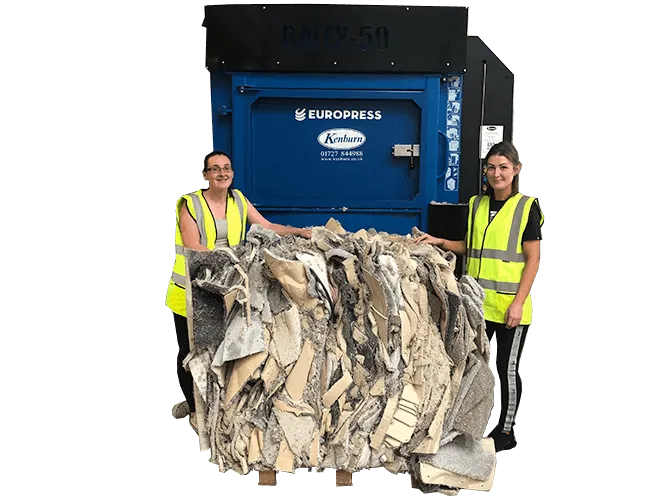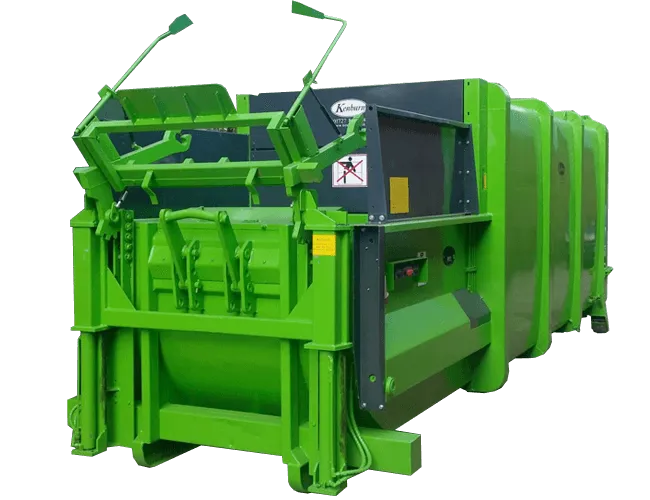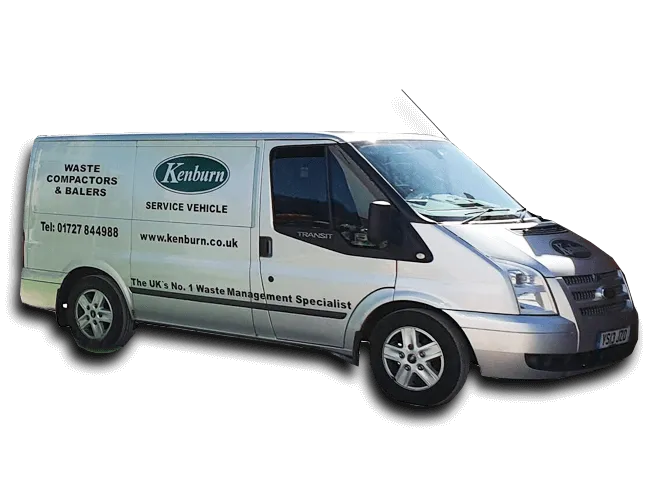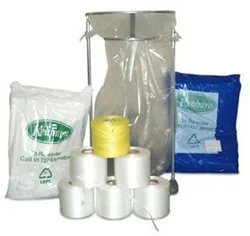 Businesses are right to be concerned by the cost and impact of the waste they produce. Not only is waste collection increasingly expensive, with landfill costs rising year on year, but we all want to support the earth’s ecology to avoid the kind of situation found in the film Wall-E. The future of waste management is about remodelling the way we store, process, and collect waste, to remove the costs and inconveniences that all businesses want to do with out.
Businesses are right to be concerned by the cost and impact of the waste they produce. Not only is waste collection increasingly expensive, with landfill costs rising year on year, but we all want to support the earth’s ecology to avoid the kind of situation found in the film Wall-E. The future of waste management is about remodelling the way we store, process, and collect waste, to remove the costs and inconveniences that all businesses want to do with out.
In this article we’ll look at how the businesses of the future will be tackling waste management to protect our environment whilst minimising their waste and cutting down their spending. At the centre of this is the movement towards a circular economy set to revolutionise waste management by creating markets for your waste materials.
What is the circular economy of waste management?
At its heart, the circular economy is a way of fundamentally rethinking how we approach waste. The circular economy model aims to move beyond the ‘take, make, dispose’ approach to waste. It aims to establish waste production and processing as a circular process involving the whole globe, whereby as little is produced and as much reused, repaired, and recycled as possible. Rather than manufacturing 1000 drills in China and selling them new in Europe, a circular economy model might manufacture 800 drills and repair 200, or ensure those 800 drills are made of materials that are reusable once they reach their end of life as a drill.
With the UK government now committed to it, the circular economy of waste management looks set to reshape the way products are made, consumers think, and the way businesses manage materials. It also promises to deliver businesses with new revenue streams and to lower the cost of waste management. Read on for a breakdown on how you can begin to participate within the circular economy through your waste management strategy.
1. Be clear about what kind of waste your business produces
All businesses produce waste. Waste paper, food, plastics, cardboards, and more can all be products of your business. The waste might come from the nature of your operations, or even the habits of your staff. For a more efficient and environmentally friendly future, it’s essential to have a good sense of the kind and quantity of waste your business produces.
Different kinds of waste should be approached in different ways to maximise efficiency. Failure to do this means a missed opportunity to minimise costs and look out for the environment. For example:
- Organic rubbish needs to be treated particularly carefully– it can attract vermin if improperly stored and can spill liquid if not processed with a wet waste compactor.
- Plastics can take up large amounts of space if not compacted, which wastes money on multiple unnecessary rubbish collections and unused working space.
By unthinkingly combining organic and plastic waste, businesses miss out on opportunities to efficiently and safely address the particular challenges of each kind of waste––losing profit in the process.
Similar inefficiency emerges whenever different kind of waste are disposed of together without care. Look into exactly what waste your business produces to see what can be recycled and how best to process the rest. This will ensure savings, and even allow you to:
2. Use a baler to create extra profit and recycle
The fact that many types of paper, cardboard and plastic can be recycled means they need to be sorted with care. Not only is recycling whenever possible great for the environment, but lots of businesses will even pay you for your baled recyclable plastic.
Plastics do not biodegrade. Instead, they photodegrade under direct sunlight, which is causing a tricky issue for plastic that ends up in the sea, which can’t get the sunlight it needs to degrade. The circular economy model of waste management was in many ways designed to answer the question of how to minimise the toxicity of our dependence on plastic. Baling your plastic is a great example of how the circular economy aims to boost business while ensuring the future of life on the planet.
A baler compresses waste into portable cubes, maximising space and easing transportation in the process. Balers come in all sorts of sizes, depending on the quantity of plastic waste that needs to be regularly processed. Recycling companies will pay for your bales of recyclable plastic, which they use to make plastic-based products from bottles to carpets: this is the circular economy at work.
Having a plastic baler on site opens up a new revenue stream for your business, while boosting your green credentials. But that is not all waste balers and compactors can do for business’ looking towards the future.
3. Compress waste to minimise the volume produced
Compressing the waste your business produces is a great way to look after the environment and maximise your future profits. Compactors work by compressing and squashing your waste into as small a space as possible. They operate with a compression ratio of about 5:1. By minimising the amount of space waste takes up:
- Waste collection costs go down as less trips to waste processing facilities required– only one trip where there would have been five.
- Much less space is taken up in workplaces by waste.
A range of innovative compactors having opened up the possibilities of waste compression to all sorts of businesses. Make sure you choose a compactor that will work for you.
4. Choose the right compactor for your business
A range of innovative compactors means many forms of waste can now be compacted. Shredders built into compactors can get to work on building detritus and fibrous materials; airtight components ensure that no liquid waste escapes. Crushers can even compress carpets, off-cuts, and underlay waste with a 4:1 compression ratio.
Beyond this, balers and compactors come in a range of sizes. Whether a business produces a few sheets of scrap paper or multiple skip loads of waste a week, they will be able to compress their waste to become even more efficient.
Balers and compactors: they’re fit for the future
Business of all scales can benefit from the circular economy. By making use of balers and compactors your business will be ready to manage waste and maximise profits in the future:
- Make sure you know how the types of waste your business produces impacts on how best they can be processed and recycled.
- Make sure your waste works for you by selling on reusable materials to other markets.
- Ensure that your waste is as compact as possible, to reduce landfill space and minimise your transportation and storage costs.
Contact Kenburn today for a free audit to see how your business can make the most of compactors and balers, read for the future.

